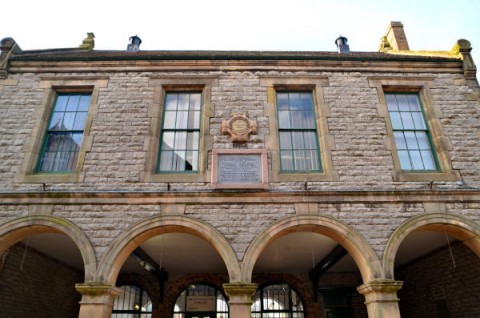
The Town Archives
A Brief History
Much Wenlock Town Council is the successor to previous public bodies that date back to the fifteenth century when the Borough of Wenlock came into being after the granting of a charter by Edward IV in 1468 for services rendered by Sir John of Wenlock during what became known as The Wars of the Roses. The charter gave the inhabitants of Wenlock independence and self-government through a Bailiff, to be elected annually from among the burgesses, who were to be a body corporate.
At its height, the Borough was, at 71 square miles, the largest borough, by area, in England outside London, and also sent two MPs to parliament. These arrangements remained largely in place until the reforms of 1835 when the office of Bailiff was abolished and when a number of outlying parishes were removed from the Borough’s jurisdiction (e.g. Badger, Beckbury, Deuxhill, Harley, Hughley and Shipton). The Borough was further reduced in 1889 and then abolished in 1966 when three of its four constituent parts (Madeley, Broseley and Barrow) became new bodies or part of a new public body. The Rural Borough of Much Wenlock was created encompassing the area of the current civil parish and it operated under Bridgnorth Rural District Council. In 1974 the Rural Borough was replaced by a Town Council. Today, those 71 square miles straddle two unitary authorities, Shropshire Council and Telford and Wrekin Council, and contain a number of town and parish councils.
The extensive and important records of the Borough, in both its forms, and the Rural Borough were inherited by Much Wenlock Town Council. As the Town Council has lacked the resources to properly secure and conserve these records, on the recommendation of its volunteer archivists, they are now in the care of Shropshire Archives, the county’s record office in Shrewsbury.
The Corn Exchange
The Archives Room in the Corn Exchange houses a variety of records and publications including some Town Council records that are not required for day-to-day management. In addition, it provides a home for the records of the former Wenlock Agricultural Reading Society (WARS), founded by William Penny Brookes and others, and its more famous offshoot, the Wenlock Olympian Society (WOS). Whilst the latter is active today, WARS became moribund in 1900 when its last remaining trustee gifted its assets (the Corn Exchange and its contents) to the Borough Council.
The Archives Room also houses a number of volumes of newspaper cuttings and the remaining books from the libraries of WARS and the Working Men’s Reading Society.
Enquiries about the archives should be addressed to the Town Council Office in the first instance. Visitors can view the archives under the supervision of one of the volunteer archivists; applications should be made via the Town Council Office.
Volunteer Town Archivist: Linda West
Volunteer Archivist of the Wenlock Olympian Society: Chris Cannon
![]()


